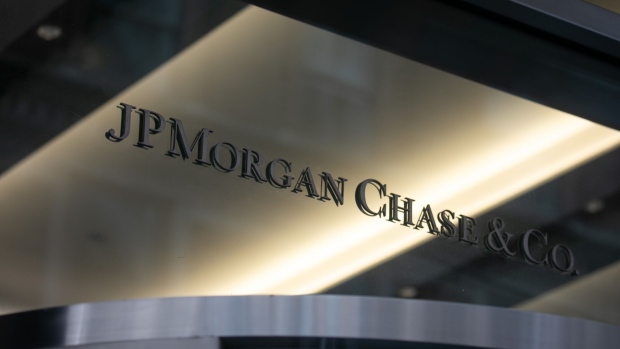Apr 17, 2024
JPMorgan Says New SDG Guidelines to Empower Impact Investors
, Bloomberg News

(Bloomberg) -- Impact investors are about to get a new toolbox to help them navigate capital allocations to projects claiming to be aligned with the United Nations’ sustainable development goals.
JPMorgan Chase & Co., together with Natixis Corporate & Investment Banking, has led a group of financial firms in putting together a set of guidelines that the biggest US bank characterizes as a game changer in impact investing.
The goal is to bring more structure to impact reporting from governments and corporates in order to help investors single out SDG-aligned projects and activities, according to Arsalan Mahtafar, co-chair of the taskforce and head of JPMorgan’s development finance institution.
“This helps investors identify companies that are managing their business, not just for financial returns, but also positive SDG impacts,” Mahtafar said in an interview.“And by just connecting those entities to the investors that have similar objectives, and empowering them with the right data, we think that just really helps us take additional steps towards bridging that financing gap.”
Read More: Analyzing the Sustainable Development Goals With BI’s SDG Model
The 17 Sustainable-Development Goals
The Impact Disclosure Taskforce was formed last year and, aside from JPMorgan and Natixis, also counts Wall Street heavyweights Bank of America Corp. and Goldman Sachs Asset Management among its members. Other members include Deutsche Bank AG, Standard Chartered Plc, Societe Generale SA and Pictet Asset Management.
The taskforce says its intention is to connect impact-focused governments and corporates with “growing pools of sustainable capital” and to “reduce major gaps” in financing of sustainable development by creating structures around SDG-aligned projects that make them more appealing to private investors.
The UN SDGs comprise 17 goals that span everything from the eradication of poverty to ensuring access to clean water. More than $4 trillion will be needed each year to meet the targets, the UN has estimated. For now, the world is falling short on 85% of the SDGs.
A key element of the taskforce’s guidance is its focus on data, according to the firms backing it. That will in turn help investors be more transparent in their reporting, they say.
Erich Cripton, director of business relations at Canadian pension fund Caisse de Dépôt et Placement du Québec, said the disclosure guidance will be useful because “there’s a huge universe of investments,” particularly in emerging markets that could be opened up to investors as a result.
“Hopefully, that will expand the ambit of where we invest, further diversify our portfolio and make a real contribution to sustainability and markets where we’re not currently as present as we’d like to be,” Cripton said in an interview.
The guidance, which is also intended to help corporate and sovereign entities report on their contribution toward the SDGs, outlines a five-step process for measuring and disclosing the impacts of business strategies or national development plans.
©2024 Bloomberg L.P.






